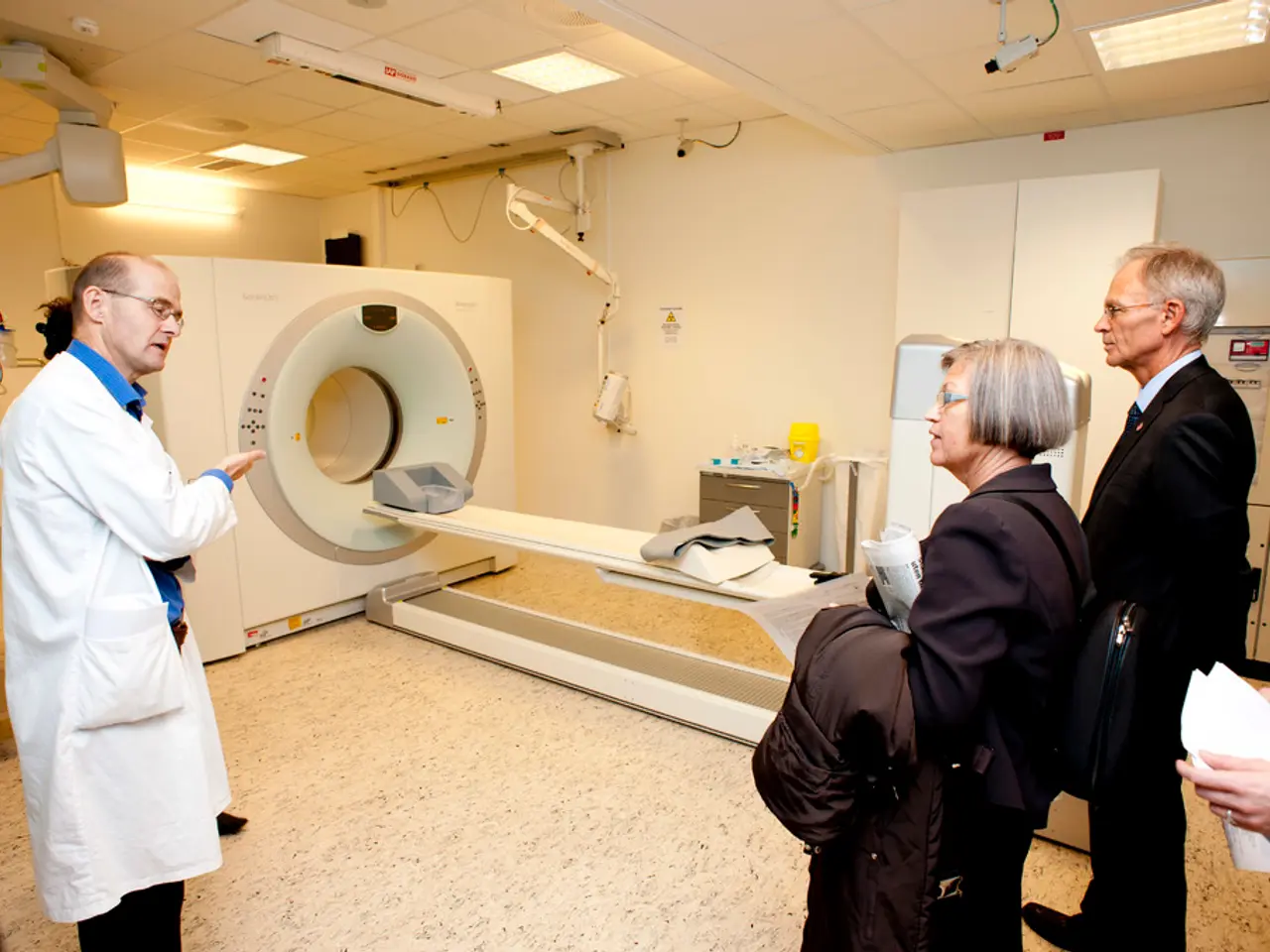Current Status of S-100B Blood Test for Traumatic Brain Injury
Brain injury diagnostics through blood tests pick up steam
The S-100B protein, a biomarker for traumatic brain injury (TBI), is gaining attention for its potential to identify patients at risk of severe brain injury and guide treatment decisions [1][4]. A series of studies conducted by physicians at six Emergency Departments in upstate New York, including Strong Memorial Hospital in Rochester, are ongoing to assess the accuracy of the S-100B test among 1,500 patients [2].
Accuracy and Clinical Use
The S-100B test has been studied as a tool for early detection and risk stratification in TBI. Elevated levels of S-100B in serum have been associated with more severe brain injuries and poor outcomes [1][4]. However, it is considered less specific than CT scans for diagnosing structural injuries like hemorrhages or fractures [2][3].
In a study comparing S-100B proteins to the CSF-serum albumin quotient (Qa), S-100B was found to be a useful tool for patients with mild head injuries, as it can predict the function of the blood-brain barrier (BBB) 12 hours after a head injury [6]. The S-100B serum protein biomarker increases rapidly after an injury and can accurately predict which head injury patients will have a traumatic abnormality such as hemorrhage or skull fracture on a head CT scan if measured within four hours of the injury [5].
Comparison to CT Scans
CT scans are highly accurate for detecting structural abnormalities such as fractures, hemorrhages, and edema in acute TBI. They provide detailed images necessary for diagnosing injuries that require immediate intervention [1][3]. However, they involve significant radiation exposure, a concern, especially in pediatric populations or in cases where repeated imaging might be needed [3].
On the other hand, the S-100B blood test does not involve radiation, making it a safer option for repeated assessments or in populations where radiation exposure is a concern [1][4]. It is more about risk stratification and predicting outcomes rather than structural diagnosis.
Conclusion
The S-100B blood test is not a direct replacement for CT scans but can be used as a complementary tool to help decide when a CT scan is necessary. It offers a non-invasive, radiation-free means of assessing the potential severity of TBI, which can be particularly beneficial in reducing unnecessary imaging in low-risk patients or in situations where CT scans are not readily available. However, when structural diagnosis is critical, CT scans remain the gold standard due to their high accuracy in detecting specific injuries [1][2][3].
The ongoing study in upstate New York will provide data to apply for U.S. Food and Drug Administration approval for the S-100B test. If approved, it could have a significant impact on the management of TBI patients, potentially reducing unnecessary radiation exposure and improving the accuracy of risk stratification.
- Science continues to explore the potential of clinical trials for chronic diseases, such as cancer, and medical conditions, including traumatic brain injury (TBI).
- In the realm of health and wellness, mental health is increasingly recognized as a crucial aspect, alongside fitness and exercise, in maintaining overall well-being.
- As people age, they often face various health challenges, including those related to nutrition and chronic diseases.
- Technology, especially in the field of medicine, can help address these issues, with CBD, for instance, emerging as a promising treatment option for various medical conditions.
- Nutrition plays a significant role in managing conditions like TBI, cancer, and chronic diseases, emphasizing the importance of a well-balanced diet in health and wellness.
- The ongoing clinical trials for the S-100B blood test, a biomarker for TBI, demonstrate the integration of science and technology in improving healthcare for patients with medical conditions, contributing to the wider discourse on health and wellness.




